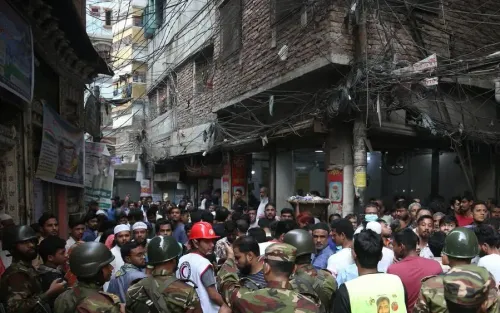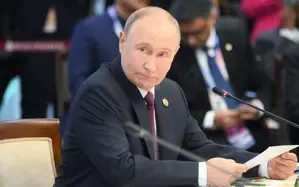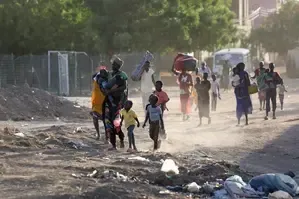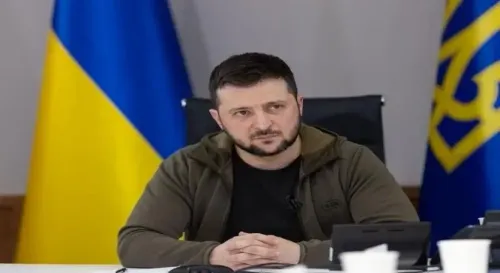Is Iranian President Suspending Cooperation with the IAEA?
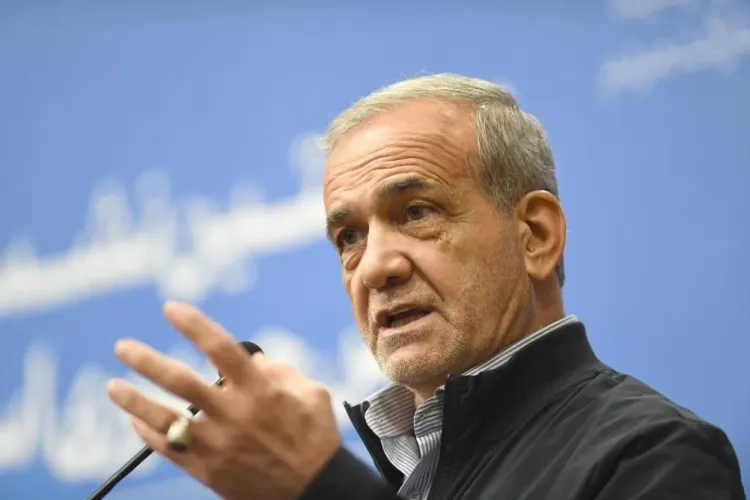
Synopsis
Key Takeaways
- Suspension of IAEA cooperation reflects Iran's sovereignty concerns.
- The move follows tensions with the US and Israel.
- Implications for nuclear oversight could be significant.
- Iran's nuclear program may face less scrutiny.
- International reactions highlight the global stakes.
Tehran, July 2 (NationPress) - The Iranian President, Masoud Pezeshkian, has issued an order on Wednesday to implement a law that halts the nation's collaboration with the International Atomic Energy Agency (IAEA).
The newly enacted law mandates a cessation of cooperation with the IAEA until Iran's sovereignty, territorial integrity, and the security of its nuclear facilities and scientists are assured, as stated by Hadi Tahan Nazif, the spokesperson for the Constitutional Council.
President Pezeshkian's directive was communicated in a letter sent to the Atomic Energy Organisation of Iran, the Iranian Foreign Ministry, and the Supreme National Security Council.
This law, which was passed by the Iranian parliament the previous Wednesday and subsequently approved by the Constitutional Council, arises from what Tahan Nazif described as a violation of Iran's national sovereignty by the United States and Israel, alongside their attacks on Iran's territorial integrity and its peaceful nuclear facilities.
The parliamentary resolution indicates that unless the security of Iran’s nuclear facilities and peaceful nuclear operations is assured, IAEA inspectors will be barred from entering Iranian territory, pending approval from the Supreme National Security Council.
This parliamentary action followed comments made by Mohammad-Bagher Qalibaf, Speaker of the Iranian Parliament, who mentioned that the legislature was contemplating a bill to suspend cooperation with the UN agency during an open session last Monday.
Qalibaf was quoted by Iran’s semi-official Mehr news agency stating, “The Majlis is drafting a plan to suspend cooperation with the agency until tangible guarantees regarding the professional conduct of this international organization are obtained.”
Additionally, Esmail Kowsari, a senior lawmaker and member of the National Security Committee, has urged the Supreme National Security Council to enforce an entry ban on IAEA chief Rafael Grossi, accusing him of facilitating Israeli-American aggression against Iran.
Recently, an “Anti-Iran” resolution was passed by the IAEA Board of Governors, based on reports from Grossi, marking one of the first claims of non-compliance against Iran in nearly 20 years, with the country being falsely accused of breaching safeguarding obligations.
This resolution, supported by Britain, France, and Germany, alongside backing from the US, resulted in strong condemnations from Iran, which subsequently announced plans for a new nuclear facility and enhancements to the Fordow enrichment plant.
Experts suggest that Grossi’s report and the accompanying resolution facilitated Israeli operations on June 13, which led to numerous casualties among nuclear scientists and high-ranking military officials.
On June 13, Israel executed significant airstrikes on various locations in Iran, including nuclear and military sites, resulting in the deaths of senior commanders, nuclear scientists, and civilians. Iran retaliated with multiple missile and drone assaults on Israel.
On June 22, US President Donald Trump stated that airstrikes had been conducted on three Iranian nuclear sites: Fordow, Natanz, and Esfahan. In retaliation, Iran targeted the US Al Udeid Air Base in Qatar.
After 12 days of conflict, a ceasefire was established between Iran and Israel on June 24.
With the law's approval, the execution oversight has been assigned to Iran’s Supreme National Security Council. Although no public statement has been released, Pezeshkian’s leadership of the council implies that the law is likely to progress.
The 2015 nuclear agreement between Iran and world powers, negotiated during Barack Obama's presidency, allowed Tehran to enrich uranium up to 3.67%, a level suitable for nuclear power generation but significantly lower than the 90% enrichment necessary for weapons-grade material.
This agreement also placed substantial limits on Iran’s uranium stockpile, imposed stringent controls on centrifuge operations, and granted the IAEA enhanced monitoring access.

